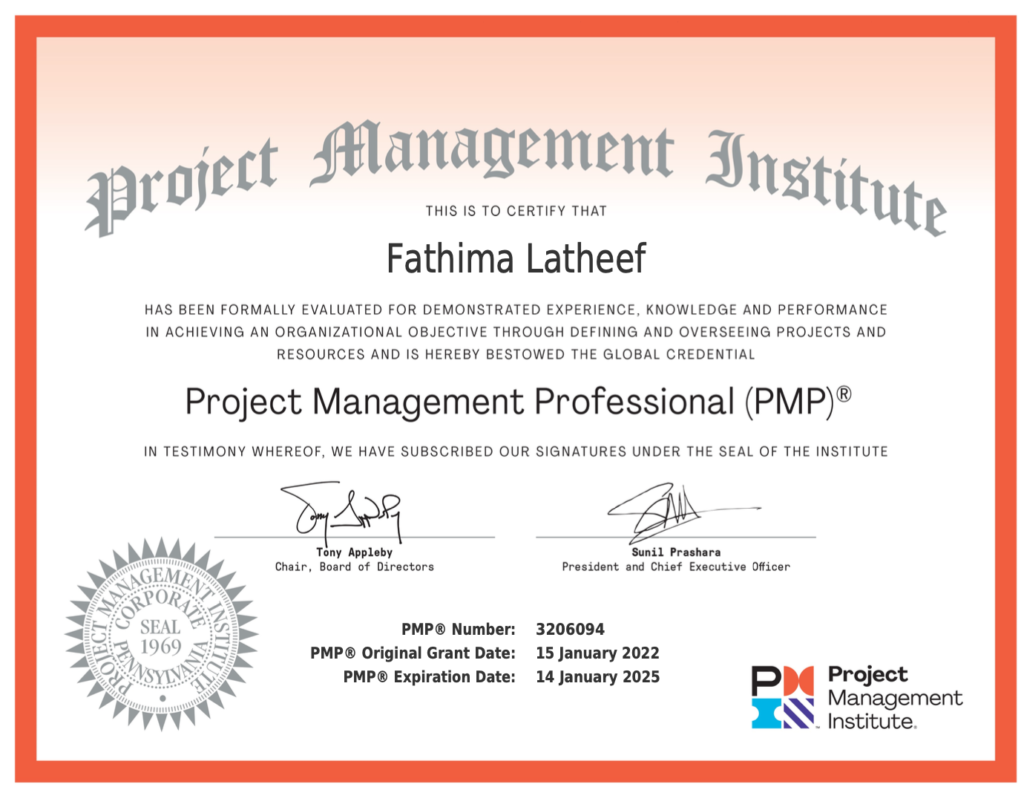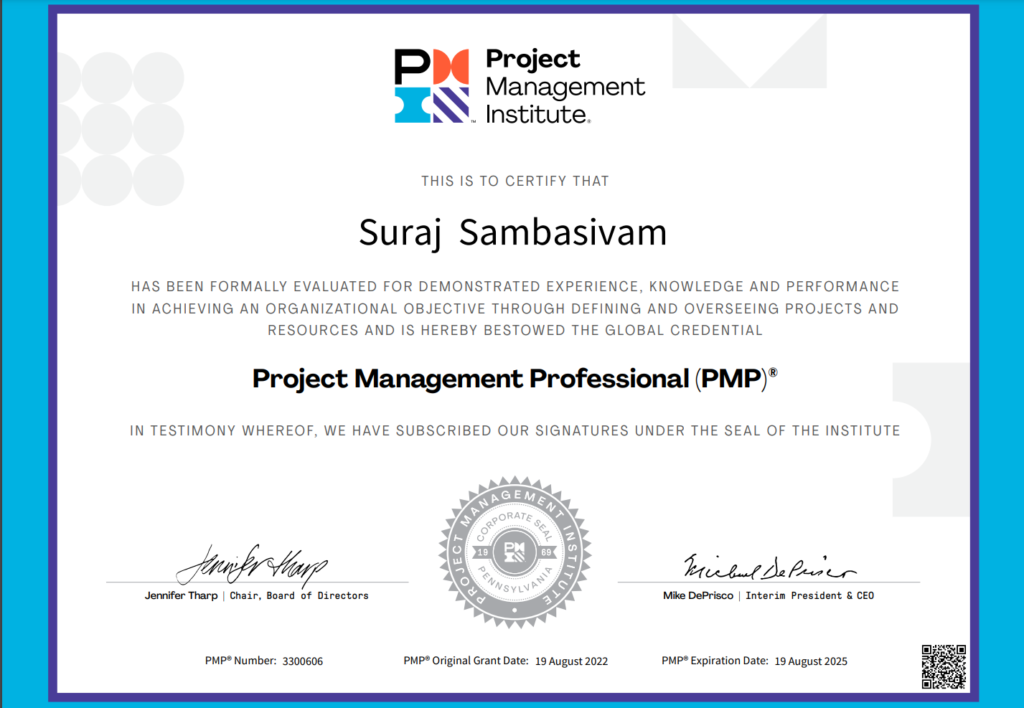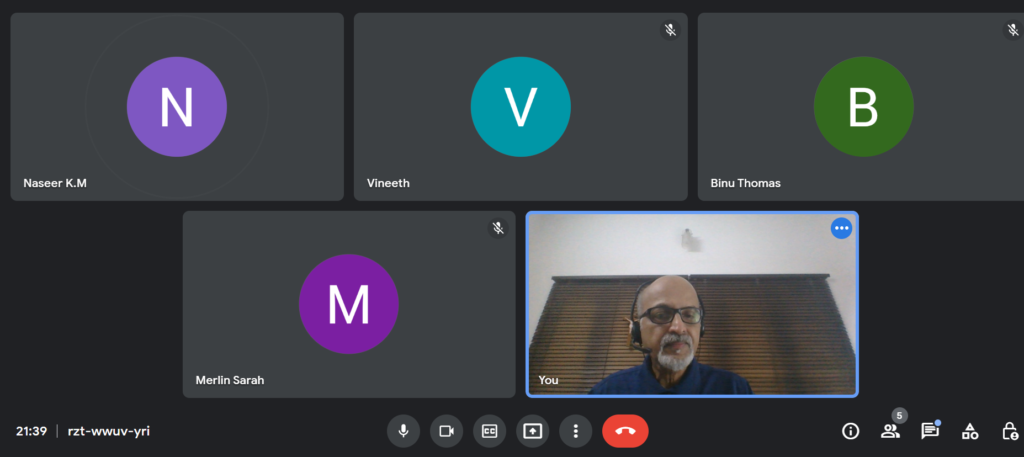A pleasant surprise. Came to know about this only today. Super delighted. Congratulations Fathima Latheef.

A pleasant surprise. Came to know about this only today. Super delighted. Congratulations Fathima Latheef.

Choose your certifications wisely. Certifications with redundant syllabus overlaps is a sure disadvantage.

Choose your certifications Wisely….
I did my PMP, what next?.Should I do any of the agile certifications? – This is one question we had to answer multiple times in the past. Yesterday also I had to answer this question again. From the Version#7 of the Project Management Body Of Knowledge (PMBOK), the base reference document for PMP certification, equal importance is given to both predictive project management (traditional project management) and agile project management. In other words,
Given that as the basis, logically there is no reason for someone pursuing any one of the agile certifications like Certified Scrum Master (CSM) or Professional Scrum Master (PSM) after their latest PMP certification based on PMBOK7. As PMBOK7 covers both agile and predictive project management in detail. But then in real life, I come across many PMPs who still do not understand critical path and earned value management even after their PMP certification. So are many of the certified agilists who does not understand empiricism and self organizing teams. When we examine just the exam content, the latest PMP course content is sufficient to manage projects in predictive, agile or hybrid way.
Then what makes the difference. Two factors.
Trainers with sufficient knowledge, experience can make a lot of difference. Multiple certifications with overlapping syllabus contents is a disadvantage. It can send wrong signals to others. Especially to those who are hunting for competent project management professionals who can put the project management best practices to work for the project’s advantage. Certifications are just the low lying fruits of the training programs. It is the application of the knowledge in real projects which makes the real difference between the credential and competency.
Congratulations to Mr.Suraj Sambasivam PMP for achieving the PMP credential. Suraj prepared for his PMP credential with the PMdistilled Project Management Professional training conducted by PMRI. It gives us immense confidence when he says he did not use any other reference material except the PMdistilled Guide, Online on demand modules, quizzes, exam practice and the one 2 one meetings with the Instructor. Now we have added mandatory weekend instructor led classes as well, with the hope of speeding up the preparation. When people attend in groups, that will definitely create healthy peer pressure to complete the exam on time. Suraj has given us some inputs to improve the course effectiveness further. We will do that as fast as possible. Once again thank you Suraj for trusting us to be your Project Management Professional Certification coach and mentor.

Click here for more about the PMdistilled Project Management Professional training
Now the PMdistilled PMP programs have mandatory weekend online instructor led classes, attended by all participants. This improves experience sharing, and also will improve positive peer pressure to complete the course along with others.
Here is a comparison of the older version of the PMdistilled PMP program and the New PMdistilled PMP Program;
Key features
Key features

For more information contact us
The Project Management Body Of Knowledge (PMBOK) comprises of the globally accepted project management best practices applicable to most of the projects, most of the time. The Construction Extension to the Project Management Body of Knowledge provides best practices relevant for construction projects. PMBOK construction extension is updated whenever a new version of the PMBOK is released. As you might already know, the new PMBOK is principle based and covers predictive, agile and hybrid project management. Construction extension (latest) is fully aligned to these approaches and at the same time have additional knowledge areas relevant for construction projects.
| PMBOK (General) | PMBOK (Construction) |
| Integration Management | Integration Management |
| Scope Management | Scope Management |
| Schedule Management | Schedule Management |
| Cost Management | Cost Management |
| Quality Management | Quality Management |
| Resource Management | Resource Management |
| Communications management | Communications Management |
| Risk Management | Risk Management |
| Procurement Management | Procurement Management |
| Stakeholder Management | Stakeholder Management |
| Project Health, Safety, Security & Environment (HSSE) Management | |
| Project financial management |
Though there is one to one mapping, the content within each knowledge area is more specific to construction projects in the construction extension to PMBOK Guide.
Should we go with agile or waterfall or hybrid is the major decision one should make before getting into detailed planning. There are construction projects which got great benefits by following agile during the engineering phases, which facilitated concurrent engineering by distributed teams. While that is the case with project management strategies / approach, project execution strategies are also equally important. For example, I know a construction project which could meet their tight deadline because they decided to go with pre-fabricated components in the project. Project strategies can also revolve around make or buy decisions, various contracting types, technologies used etc…
While the factors to be considered for developing the project’s strategy / approach are multidimensional , the rest of this article will discuss about the various project management strategies that can be adopted for successful execution of projects.
Good project approaches / strategy will play a major role in meeting the timelines within cost with quality.